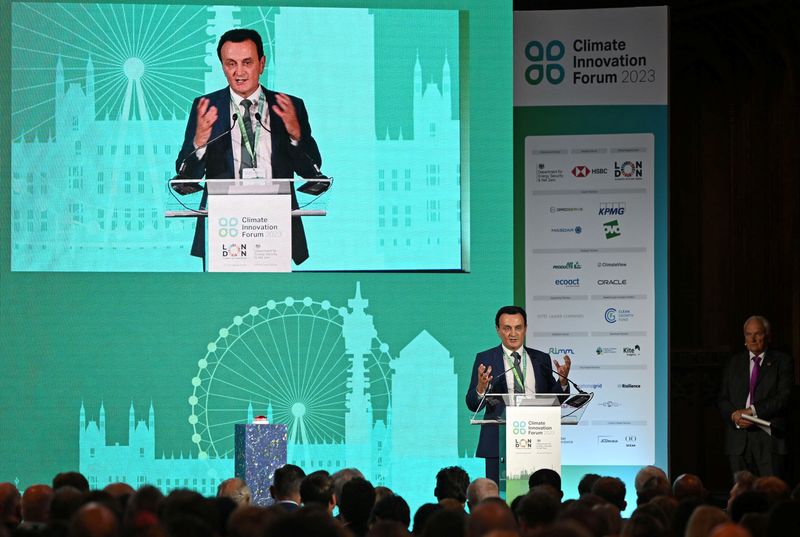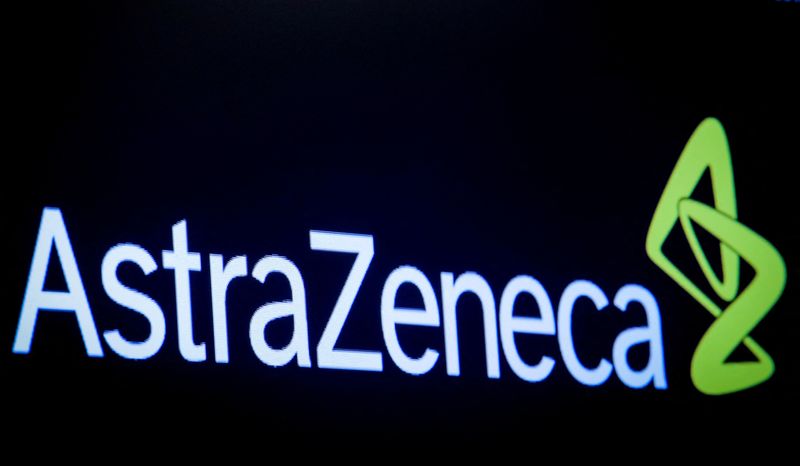By Maggie Fick and Radhika Anilkumar
LONDON (Reuters) -AstraZeneca on Friday delivered forecast-beating profits and sales in the second quarter as a strong performance by its blockbuster cancer drugs offset the loss of COVID-19 vaccine sales.
Shares in the Anglo-Swedish drugmaker, which has a strong line-up of cancer, metabolic and rare disease drugs, rose as much as 4.8%, before settling back to 3.9% by 1052 GMT, making the stock the largest weighted gainer on the FTSE 100.
Sentiment was boosted by Chief Executive Pascal Soriot's positive remarks on the company's data from a key lung cancer trial, an AstraZeneca (NASDAQ:AZN) shareholder and an analyst told Reuters.
Speaking to the media after second-quarter results, which showed a 25% rise in earnings, Soriot said the company is "very encouraged" by interim data from the TROPION-Lung01 trial, but he did not explain why the company had not declared results as "clinically meaningful".
Shares in AstraZeneca fell by as much by 8% earlier this month after interim data from the TROPION trial on an experimental precision drug called datopotamab deruxtecan, which disappointed investors.
The company said on Friday it will continue with its plan to file data from the trial with the U.S. drug regulator, soothing some concerns.
Markus Manns, a senior portfolio manager at Union Investment and AstraZeneca shareholder, said that “should increase investor confidence in the product”, after underwhelming interim data.
The strong results, which showed an adjusted profit of $2.15 per share, up 25% and exceeding the $1.98 per share expected in a company-compiled consensus, add to a string of strong quarters for the UK's biggest company by market capitalisation worth more than 165 billion pounds ($211 billion), bolstered by a strong pipeline of drugs.
Even so, the company registered no sales of its COVID-19 vaccine, its best-selling product in 2021 at the height of the pandemic, compared with $445 million a year ago, and said it expects sales to decline significantly in the full year.
SATISFIED WITH CHINA STRUCTURE
The rapid decline of the COVID business for one of the first drugmakers to develop a shot against the virus in 2020 highlights the challenge in competing with rival vaccines manufactured by Pfizer (NYSE:PFE) and Moderna (NASDAQ:MRNA).
"Each of our non-COVID-19 therapy areas saw double-digit revenue growth, with eight medicines delivering more than $1bn of revenue in the first half, demonstrating the strength of our business," Soriot said.
Excluding COVID medicines, sales in China grew by 7% at constant exchange rates in the quarter, the fourth consecutive quarter of growth on that basis.
The company upgraded its guidance for China, saying it expected total revenue to grow by a low-to-mid single digit percentage in 2023, up from a low single-digit percentage increase.
AstraZeneca is the largest drugmaker in China, which accounted for 13% of last year's revenue.
According to an FT report in June, the drugmaker was drafting a plan to spin off its China business, and considering listing a separate unit in Hong Kong.
On Friday's call with journalists, Soriot responded to a question about that report by dismissing it as a "rumour". "We are satisfied with the way we are structured in China today and our focus is delivering those medicines to patients and partnering with local biotech companies in particular."
AstraZeneca stood by its 2023 outlook.

Separately, the company said on Friday its unit Alexion (NASDAQ:ALXN) has agreed to buy U.S. drugmaker Pfizer's early-stage rare disease gene therapy portfolio for up to $1 billion, plus royalties on sales to bolster its genomic medicine capabilities.
($1 = 0.7816 pounds)
